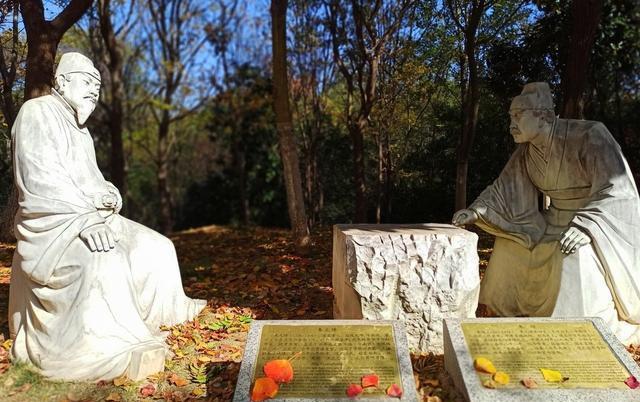Mobei was a problem for his confidants in the early years of the Ming Dynasty. In order to lay enough living space for the Ming Dynasty so that future generations could develop and live in a peaceful environment, Zhu Yuanzhang, the founder of the Ming Dynasty, and Zhu Di, the successor, frequently launched expeditions to the north of the desert. Especially Zhu Di, the five expeditions to the north of the desert were all royal conquests, which can be described as a bloody cost. However, it has to be admitted that Zhu Yuanzhang's conquest of mobei has achieved brilliant results, and although Zhu Di has a huge momentum in each conquest, the results of the battle are far inferior to Zhu Yuanzhang's, but they have worked hard and hurt the people. But despite this, Zhu Di's five expeditions to mobei were still respected by later generations, and what was the reason for this?

On the one hand, this is related to people's emotional factors. In the traditional concept, it is generally believed that "the Son of Heaven guards the gate of the country and the king dies" is a matter of course. Only the emperor's personal conquest appears to be one with the people, and even if he fails, he is a tragic hero. Although Zhu Yuanzhang's Battle of Mobei was a complete victory, he was in the imperial palace in Nanjing, eating watermelon and listening to the report, but Zhu Di's side personally went into battle to kill the enemy with a sword. In contrast, Zhu Di is naturally more in line with the image of the hero of the world, so later generations have great respect for Zhu Di.
On the other hand, rationally speaking, Zhu Di's Northern Expedition greatly suppressed the two tribes of The Wallachians and the Tatars, and no one could unify the desert north. It should be noted that the enemy of Zhu Yuanzhang's Battle of Mobei was the remnant strength of the Yuan Dynasty, and after they withdrew to Mobei, they continued to dominate by relying on several major cities, so it was more conducive to the concentrated attack of the Ming Dynasty's military generals. But the problem is that after the remnants of the Northern Yuan were eliminated, a vacuum zone appeared in the desert north, so who would rule the vast land?
As a result, the careerists of various tribes began to be unable to sleep, and they tried their best to become the masters of the desert north. Among them, the Vala and tatars are the two most important forces, and once they are allowed to continue to develop, they will surely become the heart of the Ming Dynasty. As a result, Zhu Di frequently went out on expeditions, always having a deterrent effect on the Wallachians and Tatars, in order to divide the cohesion of the desert north, so that these tribal warriors who grew up on horseback would not be bent on fighting the Ming Dynasty.
Of course, some people say that the Ming Dynasty is strong and powerful, and even if there is a real all-out war, it is not afraid. But the problem is that the economic level of the nomadic people is low, the cost of starting a war is also very low, and the speed of mobility is very fast, for the Han nationality who have become accustomed to agricultural life, fighting with the ethnic minorities in the north is equivalent to fighting with the shadows, even if they win, they will not be worth the loss. After all, the enemy's family is at best a horse. Therefore, Zhu Di's expedition to mobei was equivalent to nipping the flame of all-out war in the bud, avoiding the Ming Dynasty from consuming more national strength in the future.
However, after Zhu Di's death, Emperor Renzong and Emperor Xuanzong of the Ming Dynasty were more inclined to Shoucheng and did not have much military talent. Emperor Xuanzong had personally conquered, but he had only fought a battle around the Great Wall, and although he had won, he had not inflicted heavy damage on the enemy. And because Xuanzong died too early, so those northern tribes that were subject to the rebellion at that time rose again, so the Wallachian tribe laughed to the end in many annexation wars, becoming the new overlord of the steppe, and a change of Tumu Fort crushed the achievements of Zhu Yuanzhang and Zhu Di's two generations of kings to ashes, and has since gone downhill and never been glorified again.